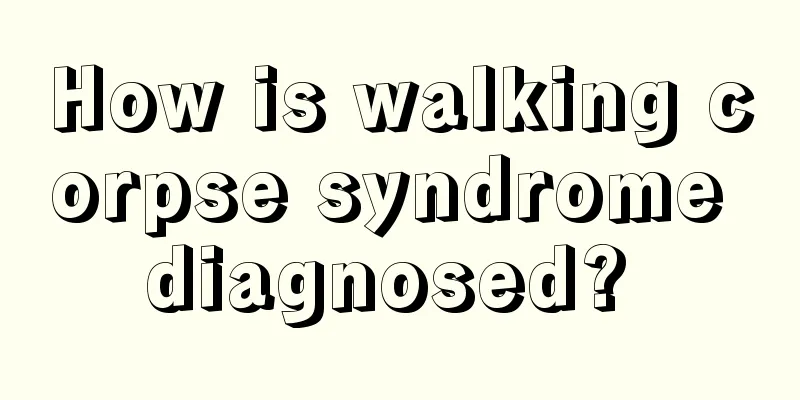How to correct children's strabismus

|
For the eyes, in addition to myopia, strabismus is also a very serious problem. Mild strabismus can affect vision and appearance, but if it becomes severe, the possibility of the brain pressing on the eyeball should be considered. Of course, strabismus can be divided into exotropia and esotropia, latent strabismus and manifest strabismus, and requires timely medical treatment and diagnosis based on actual conditions. Next, let us understand how to correct strabismus in children. Different treatment methods are used to evaluate the degree of strabismus in children: For asymptomatic latent strabismus, no treatment is required because children have stronger fusion and convergence abilities. However, some children with latent strabismus may experience symptoms of visual fatigue such as eye swelling, orbital pain, and headache after viewing objects at close range, and appropriate treatment may be required. For esotropia, the pupil needs to be dilated and the eyes need to be refraction tested, and those with hyperopia need to be fitted with appropriate glasses. Exotropia can be corrected by convergence training to strengthen the adductor muscles of both eyes and overcome it. If the effect is not good, prism glasses can be worn. For exotropia greater than 10° when looking at near objects, surgical correction of strabismus in children can be considered. For manifest strabismus, except for accommodative esotropia, most children require early surgical correction of strabismus. Different treatment methods are used for different causes of strabismus in children: Although congenital esotropia in concomitant strabismus has nothing to do with eye accommodation, it has a great impact on the development of binocular single vision function. The best treatment is surgical correction at the early stage of visual function development at the age of 2. Esotropia that occurs after the age of 2 to 3 is mostly related to excessive accommodative convergence caused by hyperopia. This type of strabismus requires full mydriasis and eye examination. Those with hyperopia should be fitted with adequate glasses and wear them for 3 to 6 months to correct or partially correct the strabismus, and then surgical treatment can be performed for any remaining esotropia. If the esotropia does not change after wearing glasses, the only treatment is surgery. If the strabismus is fully corrected, the patient can continue to wear glasses. If the hyperopia is very high, the degree of glasses can be reduced through surgical correction of the child's strabismus. For patients with manifest exotropia, after excluding obvious refractive errors, the principle of treatment is also early surgery. If the eyesight is poor, the pupil needs to be fully dilated and the eyes need to be tested. If the exotropia is caused by something that does not require adjustment, the exotropia may be corrected by wearing appropriate myopia glasses regularly. If it is hyperopia combined with amblyopia, glasses should be fitted according to the principle of using the lowest lens power to achieve the best corrected vision, and amblyopia training should be strengthened. If exotropia still exists after treatment, surgery is required to correct the strabismus. |
<<: What is the method to determine the gender of the embryo?
>>: Will a person’s facial features become better looking if they lose weight?
Recommend
Will staying up late cause brain cancer?
Staying up late for a long time is likely to caus...
Is advanced pancreatic cancer contagious?
Is advanced pancreatic cancer contagious? Pancrea...
Will a decayed tooth continue to rot after filling it
Many people have tooth decay, which can be roughl...
Is it good for children to use diapers? What should I pay attention to when using them?
Diapers naturally have their advantages. They are...
Is there any magical use for expired chocolate?
Chocolate is a very popular ingredient in modern ...
If the face becomes wider, can it be changed back?
Girls are most afraid of their faces becoming big...
Will ovarian tumor affect menstruation?
Ovarian cysts are the most common gynecological t...
How long can patients with advanced lung cancer live
It is difficult to have a clear answer to the que...
Is the blood from the lower body caused by cervical cancer contagious?
Cancer is not contagious, don't worry. It won...
Do you know what hemiplegia means?
Hemiplegia is a movement disorder caused by hyper...
How to kill mullet
Many people don’t know much about mullet. Mullet ...
How to judge the quality of bird's nest
Many people like to eat bird's nests, but few...
Why is my belly getting bigger even though I’m not pregnant?
After pregnancy, women's bellies will show ob...
What are the effects of Sophora flavescens ointment
The main effects of Sophora flavescens ointment a...
What is the treatment for gastrointestinal cold and fever
In fact, nowadays many people do not pay attentio...









